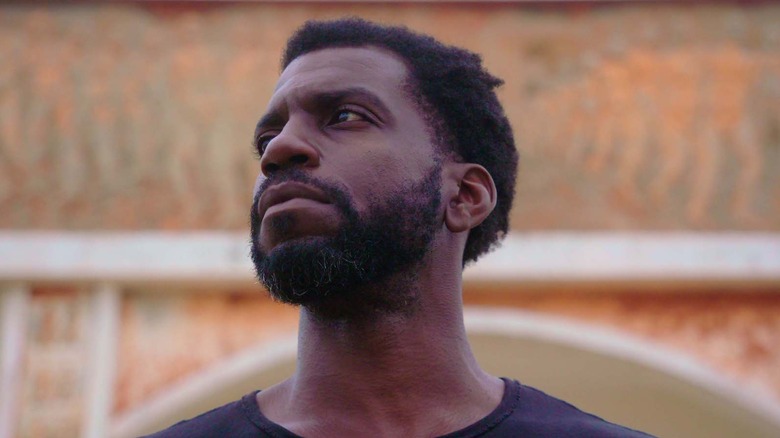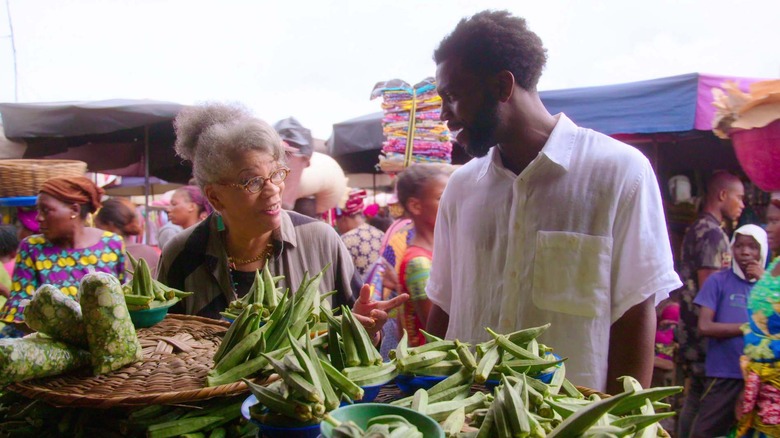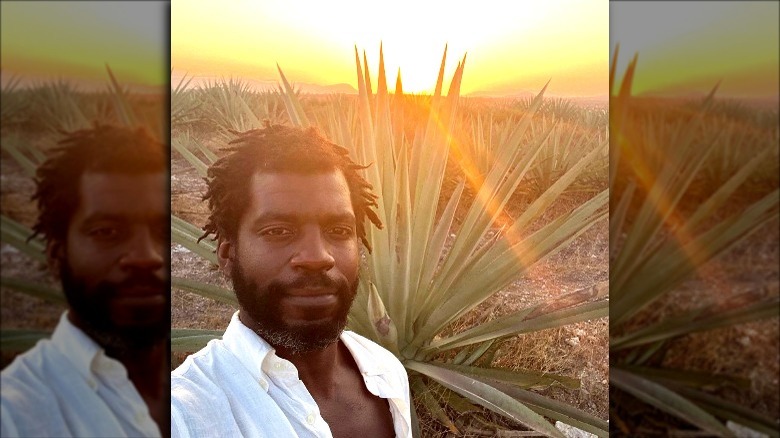Why There's Never Been A Show Like High On The Hog Before
So much of American history has been obscured by the nation's unwillingness to recognize what Black people have added to it (via Vox). And the contributions that Black people have made to American cuisine have been a recurring cultural blindspot. A new four-part Netflix documentary, called "High on the Hog: How African American Cuisine Transformed America," aims to correct that. The show highlights how "foodways emerging from Southern culture, shaped by centuries of agricultural and culinary labor by African people and their descendants" are American cuisine, as a New York Times essay by Osayi Endolyn explains. The show will be available for streaming on May 26.
There's never been a show like "High on the Hog" before, for a lot of reasons. Mainly, it's the first show that has given Black people the opportunity to tell the story about their food — America's food — their way.
Adrian Miller, a historian, said the role Black people have played in defining American cuisine has been overlooked. "The way we talk, entertain, dress, create — all of that stuff has been recognized, but not our food," Miller told The New York Times in an article about the making of the new Netflix show.
'High on the Hog' traces American food's roots in Africa
The series begins in Benin, Africa — what was once a launching point for slave ships bound for America. Okra and rice were cultivated in that part of Africa, and enslaved people turned them into a staple of Southern cooking. The show's host, Stephen Satterfield, explores the foods of Benin but also pauses at the Cemetery of Slaves, a memorial marking the mass grave of thousands of captive people who died before they could be put on slave-trading ships (via New York Times). The camera watches as he breaks down into sobs at the sight of it.
Later in the series, Satterfield meets oyster shuckers in New York, carrying on a centuries-old tradition. He watches as a historian recreates an old macaroni and cheese recipe from James Hemings, a French-trained chef who was enslaved by Thomas Jefferson.
Host Stephen Satterfield also learns how to make offal stew with Black cowboys in "High on the Hog," according to the New York Times article about the making of the show. "The cowboys — that was the moment when I realized, we really touched everything," Satterfield said in a New York Times essay about the new Netflix show. "There's not one part of what we consider to be the culture, custom, or identity of the U.S. that was made possible without Black people."
On 'High on the Hog,' Black cooks have the opportunity to tell their own story
"High on the Hog" also breaks the food-television mold in another way. A couple of decades ago, the Food Network hired Tanya Holland, a French-trained chef, to perform on the show "Melting Pot." But Holland felt the showrunners were asking her to play to stereotypes. "Every show, they kept telling me be more sassy," Holland told the New York Times. You won't see anything like that on "High on the Hog." Its executive producers, directors, and host are all Black, as is author Jessica B. Harris, who wrote the book "High on the Hog" that became the TV show.
The new Netflix series is a different sort of TV show about the Black experience, and this fresh perspective should make for rewarding viewing. "Oftentimes when our shows get made, when our stories get told, when our food gets talked about, it's the 'hardship' story," Satterfield said. When it comes to "High on the Hog," he added, "I want people to perceive it as celebratory."


